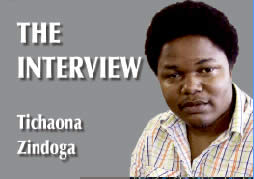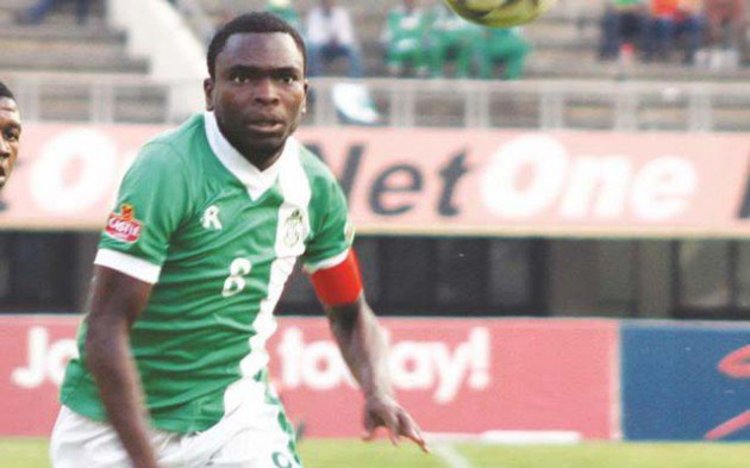EDITORIAL COMMENT: A landmark worth celebrating

THE Zimbabwe national cricket team will play their 100th Test match when they battle Sri Lanka in a landmark showdown that gets underway at Harare Sports Club this morning, amid celebrations of how far we have come as a nation in this journey among the game’s heavyweights. Twenty-four years have passed since the first ball was bowled, in the country’s first Test cricket match, at Harare Sports Club, in October 1992 with India – who have remained all-weather friends for us in this game – providing the opposition.
The world watched as the Chevrons – Test cricket’s youngest team – took on the powerhouse of India and, after five days of an intense battle, the Zimbabweans -under the captainship of David Houghton – distinguished themselves as they forced a draw that proved they were ready for the big stage.
Since then, we have featured in 99 Test matches and while our winning record is nothing to shout about, the fact that we have shown we belong to the elite club of the world’s finest cricket nations, for this long, has been a very major success story for us given that we have always been a country with a limited player base from which to select our national team representatives.
In fact, we have done better, in terms of the number of matches won in the first 99 Tests, than India and New Zealand at this stage of the history of their game, with our 11 wins better than the 10 which he Indians had won and the seven which the Black Caps had achieved.
We could have passed the 100th Test mark a long time ago, of course, had we not taken a sabbatical from the game, 10 years ago, when it became apparent that the playing personnel at our disposal were not good enough to compete in the trenches of Test cricket.
This followed the mass resignation of virtually all the white players, in protest over the sacking of the then captain Heath Streak by the Zimbabwe Cricket authorities, and the young players that we threw into the fold, without the backing of their experienced colleagues, clearly could not stand the heat.
We were right, for the sake of preserving the integrity of Test cricket and everything it represents, to take that difficult decision to take a sabbatical while we sorted our in-house issues and the good thing is that we have since returned to the big time and we are competing against the very best once again.
Our journey, as shown during that fallout between Streak and the game’s leadership, has been pregnant with a lot of drama, and no game in this country has been used as a weapon for political battles more than cricket.
Andy Flower and Henry Olonga chose the World Cup stage, on home soil, to stage their so-called black armband protest against what they claimed was the death of democracy in this country and, as expected, the international media feasted on it in what was a well-choreographed act to embarrass not only this country but its leadership.
That it has since been proven that a number of opposition political figures, including David Coltart, played a key role in that protest, has provided justification to our authorities’ argument that the protest was largely a political move that was aimed at boosting the prospects of those who oppose the country’s leadership.
And when the game was split along racial lines, a few years later, in the wake of the walkout of virtually all the white players, it also provided further proof that the political hawks are always trying to stoke the fires, using the game, for their wayward causes.
Then, there is also that group which never wanted this game to be spread to the blacks, even though they make the majority in terms of numbers in this country, insisting that it should remain their enclave dominated only by the white players with a few black players on board just to make up the numbers.
This group – which include some white former commercial farmers who believed they owned this game – is still fighting in the shadows, to try and destroy our cricket, and have a number of allies around the world who have been helping their agenda with England playing the leading role.
That the English cricket team hasn’t played their Zimbabwean counterparts, in Test cricket, in more than a decade is not just a coincidence but part of this plot, loaded with all its political undertones, to try and not only destroy this game but also to further the cause of their political leaders against the establishment in this country.
We are glad that, despite all that, including our game being denied the financial benefits that could come with box-office tours of the English to this country, we are still standing firm and today we can celebrate our 100th Test match, something which our detractors never believed would happen 10 years ago.
Cricket’s resilience mirrors, in a big way, the resilience of the people of this country and, as we celebrate our 100th Test, we hope our team will perform to expectations against an opponent whom they are yet to beat in 15 Test matches.
We are solidly behind our boys and we are also charmed by the fact that people like Streak have come back on board to play a part in developing this game and, as a united nation, we can do wonders.







Comments